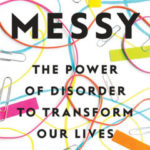Attending the seminar was part of Burkeman’s research into the dangers of positive thinking, which included scouring the work of researchers, psychologists, and management consultants. “The startling conclusion at which they had all arrived, in different ways,” he writes, “was this: that the effort to try to feel happy is often precisely the thing that makes us miserable. And that it is our constant efforts to eliminate the negative — insecurity, uncertainty, failure, or sadness — that is what causes us to feel so insecure, anxious, uncertain, or unhappy. They didn’t see this conclusion as depressing, though. Instead, they argued that it pointed to an alternative approach, a ‘negative path’ to happiness, that entailed taking a radically different stance towards those things that most of us spend our lives trying hard to avoid.”
That same “negative” approach to happiness, Burkeman writes, “also helps explain why … a new generation of business thinkers are advising companies to drop their obsession with goalsetting and embrace uncertainty instead”:
[Management consultant Steve Shapiro, who has reinvented himself as an advocate for abolishing goals, makes] a counterargument to his skeptical clients [that] begins with what he calls “the happiness and self-worth side of things”: goal-free living simply makes for happier humans. In survey research he commissioned, drawing on samples of American adults, 41 percent of people agreed that achieving their goals had failed to make them any happier or had left them disillusioned, while 18 percent said their goals had destroyed a friendship, a marriage, or another significant relationship. Moreover, 36 percent said that the more goals they set for themselves, the more stressed they felt — even though 52 percent said that one of their goals was to reduce the amount of stress in their lives.
Bosses are more frequently persuaded, though, by Shapiro’s other argument: that getting rid of goals, or focusing on them less fixedly, is often also the best way to extract results from employees. He seduces them with anecdotes about the effectiveness of operating goallessly, such as the tale of the Formula One pit crew with which he worked, whose members were told that they would no longer be assessed on the basis of speed targets; they would be rated on style instead. Instructed to focus on acting “smoothly,” rather than on beating their current record time, they wound up performing faster. Then there was the story of the sales team that went from missing its targets to exceeding them — as soon as it became company policy to keep those targets a secret from the salespeople. “You can have a broad sense of direction without a specific goal or a precise vision of the future,” Shapiro told me. “I think of it like jazz, with improvisation. It’s all about meandering with purpose.”
For more information: oliverburkeman.com
Excerpted from The Antidote: Happiness for People Who Can’t Stand Positive Thinking, by Oliver Burkeman, published by Faber and Faber Inc., an affiliate of Farrar, Straus and Giroux, LLC. Copyright © 2012 by Oliver Burkeman. All rights reserved.



